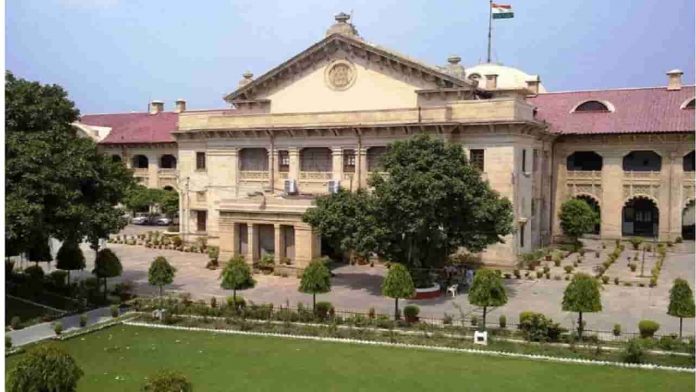
The Hindu side in the case related to worshipping rights in the Gyanvapi Mosque complex on Wednesday filed a caveat in the Allahabad High Court urging it not to issue a unilateral order based on the Muslim side.
The Hindu side expressed apprehensions that the Anjuman Islamia Masjid Committee (AIMC) was likely to challenge the Varanasi court verdict in the High Court and the latter could pass a unilateral order, in case a caveat was not filed by the Hindu side.
A local court in Varanasi on Monday had ruled that the petition filed by five Hindu women seeking permission to worship inside the Gyanvapi Mosque Complex was maintainable.
Dismissing the plea filed by AIMC under Order 7 Rule 11 of the Code of Civil Procedure (CPC), District Judge Dr. Ajay Kumar Vishveshva had observed that the suit filed by the Hindu worshippers was not barred by either the Places of Worship Act, or the Waqf Act.
The court agreed to hear on September 22, the plea by Hindu devotees, who sought right to worship Maa Shringar Gauri on the outer wall of the mosque complex located next to the Kashi Vishwanath temple.
The AIMC, which manages the Gyanvapi Mosque in Varanasi, had challenged the maintainability of this suit, contending that the same was barred under the Places of Worship Act, 1991.
The verdict decided the fate of more than three decades-old issue. A petition was filed by Swayambhu Jyotirlinga Bhagwan Vishweshwar in a Varanasi court in 1991, seeking the right to worship in the Gyanvapi complex.
As per the 1991 plea, the petitioner had demanded declaration of the entire Gyanvapi complex as part of the Kashi temple, removal of Muslims from the complex area, and demolition of the mosque.
This was followed by a fresh case filed by the AIM Committee in Allahabad High Court in 1998, asserting that the temple-mosque land dispute could not be adjudicated by a civil court, as it was not permissible by the law. The High Court stayed the proceedings in the lower court for 22 years.
A fresh petition was filed in 2019 by a person named Rastogi, calling himself as the ‘next friend’ of Swayambhu Jyotirlinga Bhagwan Vishweshwar. The petitioner demanded survey of the entire disputed area by the Archaeological Survey of India (ASI).
This led to an intervention by the AIMC, opposing the petition seeking ASI survey of the Gyanvapi complex.
The petitioner approached the lower court for resumption of hearing in the 1991 petition, as the Allahabad High Court had not extended the stay further.
The Supreme Court Bench, led by then Chief Justice S.A. Bobde, took up a plea filed by Advocate Ashwini Kumar Upadhyay, challenging the constitutional validity of the Places of Worship Act 1991 in March, 2021. The Apex Court issued notice to the Union government in the matter.
Five Hindu women had filed a petition in the Varanasi Court in August last year, seeking permission to worship deities, such as Lord Hanuman, Nandi and Goddess Shringar Gauri, inside the Gyanvapi complex. The petitioners further demanded ban on people causing damage to the idols.
The Single-Judge Bench of Justice Prakash Padia of Allahabad High Court ruled in September, 2021 that it would wait for further verdict on other cases related to the matter, which were pending in other courts.
The Varanasi court appointed an Advocate Commissioner and also ordered videography survey of the complex in April this year. The decision was again challenged by the Anjuman Intezamia Masjid Committee in the Allahabad High court, which rejected the Committee’s plea. The party later filed a Special Leave Petition in the Supreme Court.
After the completion of survey, the findings were submitted in a report to the court on May 19 this year.
The very next day, the Apex Court transferred the proceedings to a district judge. As per the top court of the country, a senior judicial officer with an experience of over 25-30 years could handle the case in a much better way.
Hearing started in the district court on May 26, 2022, regarding the maintainability petition of the case. However, arguments from the Anjuman Intezamia Masjid Committee remained incomplete till that date, leading to further extension of the date of hearing.
Varanasi district judge Dr. Ajai Krishna Vishvesha had reserved his order on August 24,, giving time to both the parties to complete their arguments.

